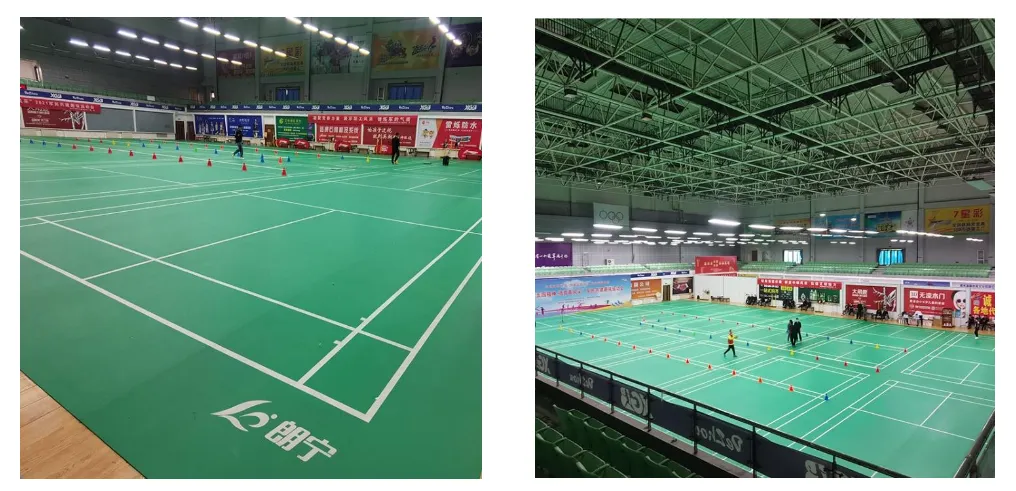commercial floor tile types
Exploring Commercial Floor Tile Types A Comprehensive Guide
When it comes to commercial spaces, the flooring choices can significantly impact functionality, aesthetics, and maintenance. Among the various options available, commercial floor tiles stand out as a popular choice due to their versatility, durability, and ease of installation. This article aims to explore the different types of commercial floor tiles, helping business owners make informed decisions for their spaces.
1. Ceramic Tiles
Ceramic tiles are a classic choice for commercial flooring. Made from natural clay and other minerals, they are glazed to create a hard, durable surface. Available in numerous colors, patterns, and textures, ceramic tiles can emulate the look of natural stone or other materials, enhancing the aesthetic appeal of any commercial environment. They are resistant to stains and moisture, making them ideal for high-traffic areas like restaurants and retail stores. However, it is essential to consider that ceramic tiles can be slippery when wet, so anti-slip options are advisable for such environments.
Similar to ceramic tiles, porcelain tiles are made from denser clay, making them even more resilient. Their low water absorption rate makes them suitable for areas prone to moisture, such as bathrooms and kitchens. Porcelain tiles also come in a wide range of designs, including those that mimic wood, stone, or other materials. They are exceptionally durable and can withstand heavy foot traffic, which makes them perfect for commercial spaces like hotels and malls. Additionally, they require minimal maintenance, which is a significant advantage for busy business owners.
3. Vinyl Tiles
commercial floor tile types

Vinyl tiles have gained popularity in the commercial sector due to their affordability and versatility. They are available in both tiles and sheets and come in an extensive variety of designs and colors. Vinyl is softer and warmer underfoot than ceramic or porcelain, making it a comfortable choice for spaces where employees may be standing for long periods. Furthermore, modern luxury vinyl tiles (LVT) can replicate the look of hardwood or stone at a fraction of the price. Vinyl tiles are also water-resistant, making them suitable for areas that experience spills or moisture.
4. Rubber Tiles
Rubber tiles are an excellent option for commercial spaces that prioritize safety and comfort. They provide excellent traction, helping to reduce slip-and-fall accidents, which is particularly crucial in environments like gyms, schools, and hospitals. Rubber tiles are also highly durable and can absorb sound, making them ideal for busy settings. They come in various colors and designs, allowing businesses to maintain an aesthetic appeal while ensuring safety and functionality.
5. Natural Stone Tiles
For those seeking a more luxurious and high-end option, natural stone tiles such as granite, marble, or slate may be the answer. These tiles provide unique beauty with their natural variations and patterns. However, they tend to be more expensive and require more maintenance than other flooring types. It’s vital to seal natural stone tiles regularly to protect them from staining and moisture damage. Their elegant appearance makes them a favored choice for upscale restaurants, hotels, and corporate offices.
Conclusion
Choosing the right type of commercial floor tile is essential to creating an inviting, safe, and functional environment. Whether opting for ceramic, porcelain, vinyl, rubber, or natural stone tiles, each option has its advantages and suitability depending on the specific needs of the business. By understanding the characteristics and benefits of each type, business owners can select flooring that not only enhances the aesthetic appeal of their space but also stands up to the demands of everyday commercial use. Ultimately, the right flooring solution can elevate a commercial space, contributing positively to both employee satisfaction and customer experience.
-
Commercial Parquet Flooring: Considerations of Aesthetics, Practicality, And SustainabilityNewsApr.15,2025
-
PVC Sports Flooring: Performance, Applications, And Development TrendsNewsApr.15,2025
-
PP Interlocking Floor: a Paving Solution That Combines Functionality and SustainabilityNewsApr.15,2025
-
Plastic Flooring Tiles Outdoor: Practicality, Sustainability, And Development ProspectsNewsApr.15,2025
-
On the Application of PVC Flooring for Badminton Court in Badminton VenuesNewsApr.15,2025
-
Commercial Wood Flooring: the Balance Between Aesthetics, Functionality, And SustainabilityNewsApr.15,2025
-
The Ultimate Guide to Futsal FlooringNewsMar.27,2025

